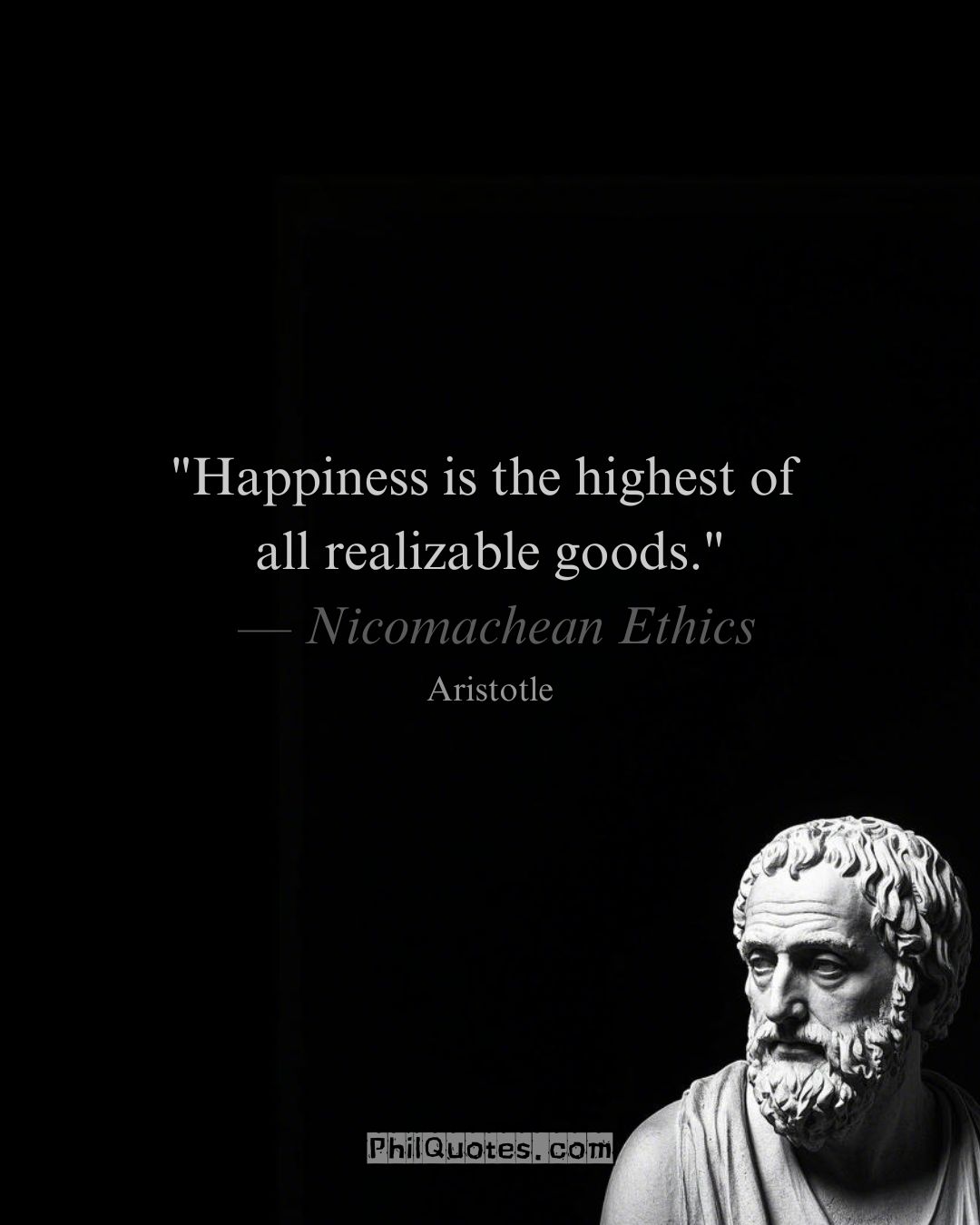
“Happiness is the highest of all realizable goods.”
— Aristotle, Nicomachean Ethics, Book I, Chapter 4
Simple Explanation:
Aristotle defines happiness (eudaimonia) as the ultimate realizable good — the final aim that gives value to all other achievements (wealth, health, honor). Unlike fleeting pleasures, it requires lifetime cultivation of virtue, reason, and meaningful relationships.
Real-World Connection:
① Pursuing a Creative Passion →
You paint daily (action) → develop artistic skill (immediate good) → exhibit your work (proximate good) → inspire others through beauty (highest good: purpose-driven happiness).
② Volunteering at a Shelter →
You serve meals (action) → alleviate hunger (short-term good) → build community trust (larger good) → experience fulfillment in compassion (self-sufficient good).
③ The Golden Thread →
Even “small” goods (like earning a salary) are steps toward happiness — but only when aligned with moral courage, intellectual growth, and social contribution do they become realizable in Aristotle’s vision.